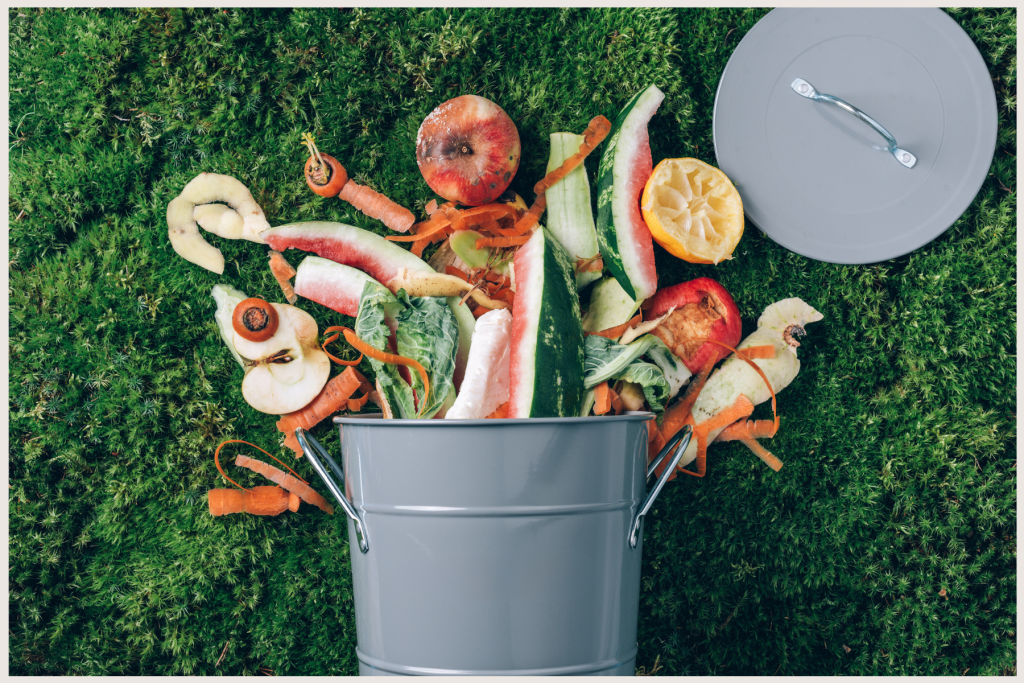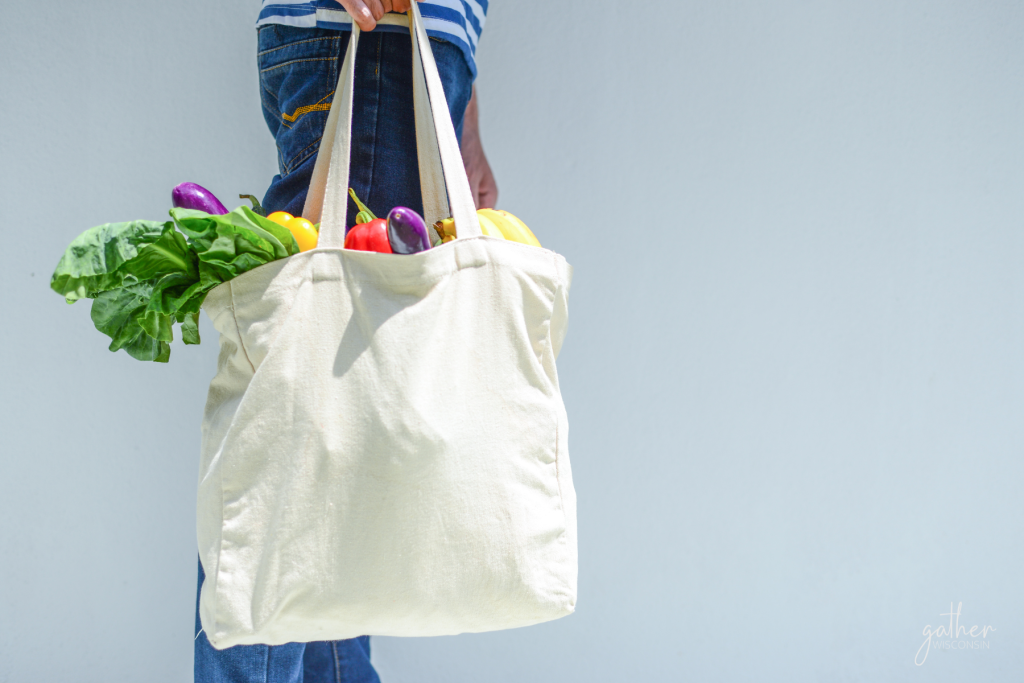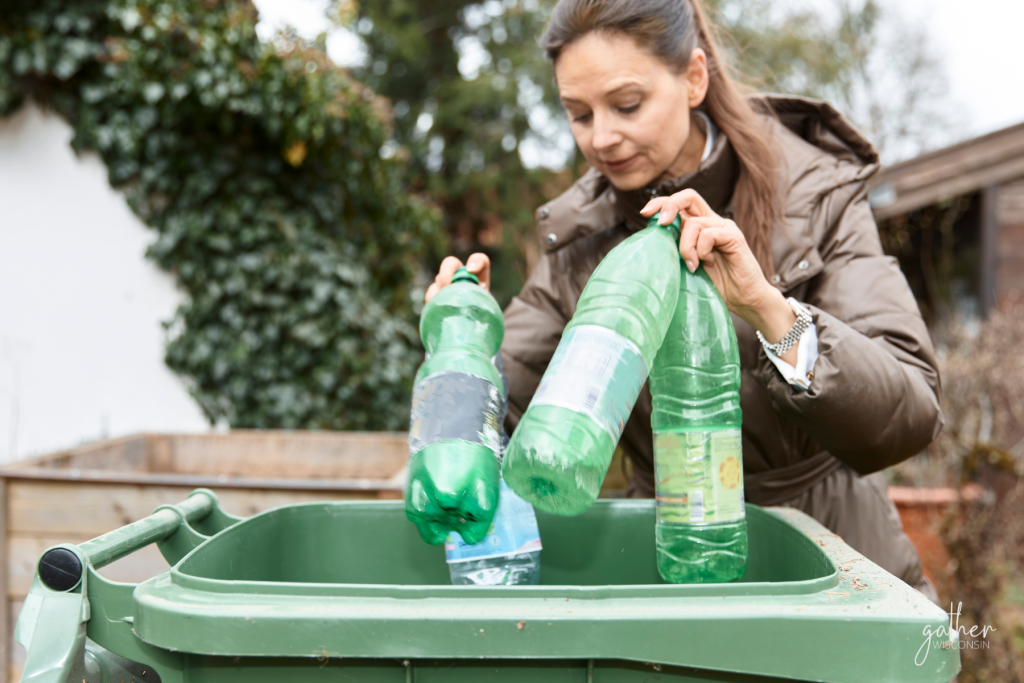A farmer’s list of new year’s resolutions might look different from yours. Planning for the new year on a farm involves financial planning, genetic evaluations, seed selections, field mapping and equipment maintenance.
A goal we can all have in common for next year is to be responsible stewards of our resources.
Did you know that farmers set sustainability goals? For example, dairy farmers have an action plan in place to be carbon neutral by 2050. Corn growers are working hard to reduce soil loss caused by erosion by 2030. All types of farmers share the goal of producing the safest and most sustainable food for your family to enjoy.
We all have a responsibility to care for our planet. You can help by adding your own sustainability goals to your New Year’s resolutions this year! Here are some ideas to help you be more sustainable in 2024.
#1. Reduce food waste.

Approximately one-third of human food in the world is wasted. Food waste takes up valuable space in landfills and contributes heavily to greenhouse gas emissions. You can reduce food waste at home by sticking to your grocery list, storing produce properly and creatively reusing leftovers. Instead of tossing unused items from your pantry, check the expiration date and donate them to your local food bank.
#2. Use reusable water bottles and shopping bags.

The average American will use 156 plastic disposable water bottles a year. You can reduce your impact by opting for a reusable water cup. Plastic shopping bags are not recyclable and take up space in landfills. Bring your own bags to the grocery store as an alternative to plastic shopping bags. Reusable items are versatile and economical.
#3 Recycle.

Bottles, cans, paper and cardboard are safe to recycle. Recycled items should be rinsed and free of debris that will dirty the other materials in your bin. Try placing extra recycling bins around your home to encourage you and your family to recycle outside of the kitchen. Be mindful of placing non-recyclables in the recycling bin. Non-recyclables must be removed by hand or mechanically sorted so they don’t contaminate the high-value recyclables. Learn more about your local recycling programs by searching for your waste management facility guidelines online.
We all share the responsibility to care for our planet and leave it better for the next generation. Visit the Sustainability at Home page for more ways to bring sustainability into your day to day life. What can you do to be more sustainable this year?

